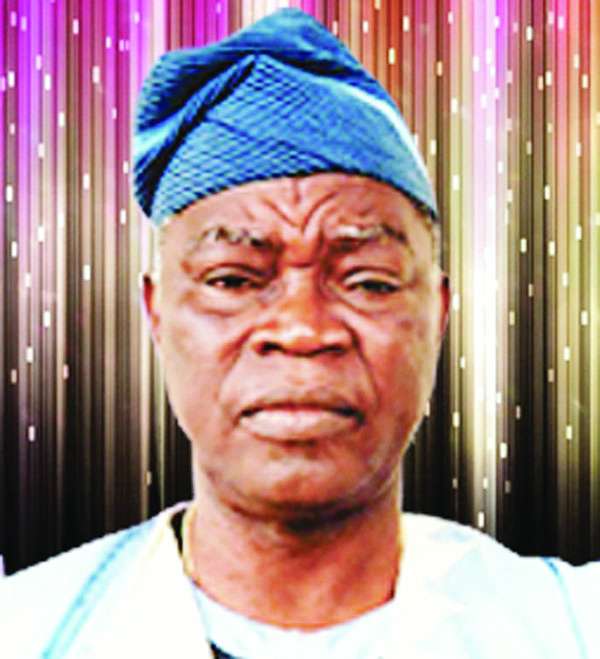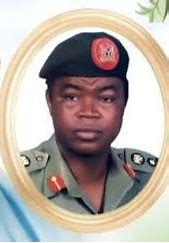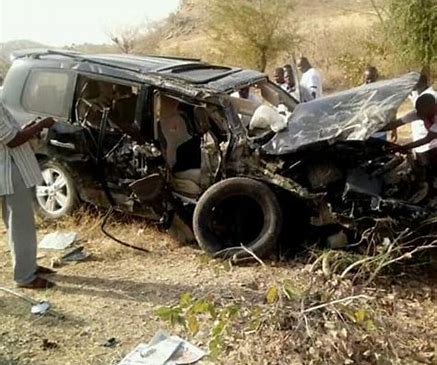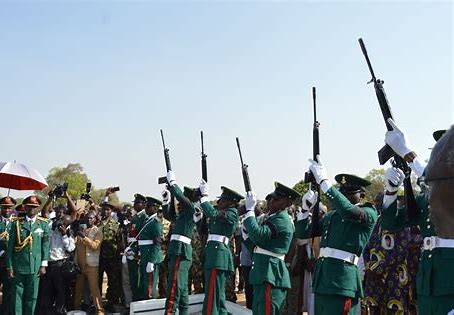In our daily struggle for survival in a world of an incongruous blend of pains and pleasure where the cost of living is suffocating the living, memories are easily lost. But for a man who has written his name in gold in the annals of history both as a combatant soldier and as a fantastic politician, remembering him is synonymous with the air we breathe.
Of course, it is certainly not possible for a man to forget his name, no matter the trials and tribulations. And so is the name of this servant leader, Senator Shagaya, though he is physically death, but his infrastructure, socioeconomic and political legacies are alive and they keep reverberating in our hearts reminding us of an accomplished rare personality who held discipline and honesty so dear to his heart.
Though death is natural as it is to give birth, Sunday, February 11, 2018 dealt us a big blow. To different people, dead leaders especially politicians mean different things to them. Both their strengths and their weaknesses determine the rules and set the playing fields upon which the succeeding generations assume their places of responsibility in the society. Their accomplishments are appropriated, their failures unearthed and exaggerated in agreement with belief.

This is not surprising because human beings by nature are masters of thoughts. They review the past, analyse the present and forecast the future. Little wonder, Shakespeare wrote that “the evil that men do lives after them but the good is interred with their bones.” Of deceased political figures, Abdul-Raheem writes: “Politically, victims and beneficiaries remember both. It is the balance between the two (the good and the bad achievements) that determines their place in the politics of memory, which, like all memories, is prone to being selective
John Nanzip Shagaya (Danburam Langtang II) (2 September 1942 – 11 February 2018) never settled for less in his chosen endeavour. For anything he set out to achieve, he did it as if his life depended on it. General Shagaya himself confirmed this ideology in an interview in 2013: “One thing my upbringing dictates for me to do is to be upright, be truthful in whatever I do. In my relationship with other beings and lesser mortals. One has to do so with fairness. And in carrying out the challenges of duty and responsibilities, one should do so as a good ambassador. This has been all I have tried to do-hard work, truthfulness, honesty—sometimes to a fault. I also set very high standards and expect that subordinates and colleagues would take on and achieve results.”
In his chosen military career, he aimed for the top and never relented until he got to the top as a General and would soon become an indispensable member of the Supreme Military Council, while joining politics, he showcased his political skills that earned him a landslide victory as a Senator of the Federal Republic of Nigeria (2007 – 2011).
John Nanzip Shagaya as a Gentle General
After graduation from Nigeria Military School Zaria (1960–1964), Shagaya was posted to the Nigeria Army Corps, then posted to 3 Marine Commando when he gained his commission as Second Lieutenant. He participated with the Marine Commando in the Nigeria Civil War (1967–1970). Later appointments included Grade Three staff officer Nigeria Army School of Infantry, Jaji, Director of Cadets, Nigerian Defence Academy, Director of the Armed Forces Command and Staff College, Jaji, Brigade Commander, 9 Mechanised Infantry Brigade, Military Secretary, Army Headquarters, and General Officer Commanding;1st Mechanised Infantry Division.

According to Wikipedia “Under the Military government of General Ibrahim Badamosi Babangida, Shagaya was Federal Minister of Internal Affairs, a member of the Armed Forces Ruling Council and a member of the Police Council. He also served as chairman of the committee set up in 1987 to decide on Nigeria’s membership of the Organization of the Islamic Conference. Shagaya was involved in drafting the main protocols for the Economic Community of West African States. As a member of the National Boundary Commission, he helped resolve disputes with Benin and Chad”.
Shagaya was appointed Field Commander in the ECOMOG Peacekeeping Force in Liberia in September 1993, relieving Major General Tunji Olurin. On November 17, 1993, General Sani Abacha became head of state after a military coup. Abacha distrusted Brigadier John Shagaya and other “IBB boys” loyal to Babangida. Within a few days, Shagaya was recalled from Liberia, demoted from Major General to Brigadier General and then retired from the army.
John Nanzip Shagaya as a Super Senator
Five years after his retirement and deserved rest, the orator became Director of Lion Bank (Nigeria) between 1998 and 2003. Shagaya would quickly transform from a military general to a civilian and became a founding member of the United Nigeria People’s Party (UNPP).
He was soon to find the murky political waters very slippery. He contested unsuccessfully for the Senatorial seat of Plateau South in 1999 elections. Before the 2003 elections he joined the All Nigeria People’s Party (ANPP), but was defeated again until he studied the political terrain and eventually won the political battle just like he did in the army. Shagaya was elected as the Distinguished Senator for Plateau South in April 2007, running on the platform of PDP.
This was the period I personally got close to Senator Shagaya, all thanks to Chief Hon Dinah Nanji Lohde Lar (then House Member, Langtang North Central Constituency) and Comrade Selkong Wazhi. Courtesy these two people, I stayed in Senator Shagaya’s house close to EFCC Training School, Karu for almost a month indoors writing manually membership cards for the whole of Southern zone of the Peoples Democratic Party, PDP. My ‘fine’ handwriting earned me that special assignment
In June 2009, Shagaya warned that offering an amnesty to the Niger Delta militants might not end the violence. The militants might hide their best weapons, and return only disused and damaged ones. In an interview in October 2009 he defended the various military interventions since Nigeria gained independence, and stated that the influence of generals in politics since 1999 simply reflected their training and discipline
His projects, empowerment and legislation will need a whole book to be compiled in. Indeed, he justified the confidence reposed in him.
Just like the chicken covers its chicks in times of danger, rains and the sun, so have your fearless, frank and firm views on national issues protected and cautioned the nation from the snares and dangers that locked around us every minute of our lives.
Terrorism has taken over some territories, kidnapping is walking our streets and knocking on our doors like neighbours coming to sympathize with us in our grief, banditry has become a lucrative business to criminals. Maybe, his purposeful, truthful and sincere guidance in proffering solutions to national issues would have changed the narratives because he would have formulated national policies as the Director General of National Institute for Policy and Strategic Studies, NIPSS Kuru, Jos. The position he never assumed until his mortal being transited to immortal.

Born on September 2, 1942, to Mallam Sikji Miri Wazhi (alias SHAGAYA) and Mrs. Maryamu Zwancit, Shagaya lost the battle of life through a ghastly motor accident at Amper, Langtang – Jos road. February 11th 2018 won the battle but didn’t conquer the war because, forever, General John Nanzip Shagaya lives in our hearts. His legacies outlive him.

Rest on the people’s senator! Rest on the orator! Keep resting Tarok finest intellectual reservoir!
…Miri Timnan Nyantau (M.T.N), Majidadin Gazum wrote this from the hills of Gazum and can be reached via miritimnankoinonia@gmail.com








